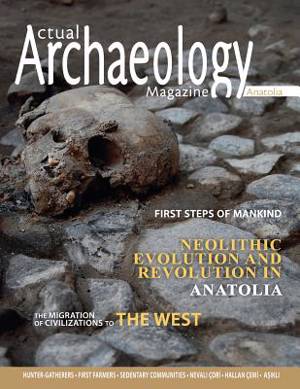
- Afhalen na 1 uur in een winkel met voorraad
- Gratis thuislevering in België vanaf € 30
- Ruim aanbod met 7 miljoen producten
- Afhalen na 1 uur in een winkel met voorraad
- Gratis thuislevering in België vanaf € 30
- Ruim aanbod met 7 miljoen producten
Omschrijving
The Paleolithic Period, known to the public as "Old Stone Age", was a long period of time when mankind lived as mobile hunter-gatherers for almost two million years. They were living like other beings do in nature without producing, but instead only with using, viewing and transferring the opportunities that the nature offered them. During this long period of time, mankind's knowledge about nature increased and mankind learned how to manage nature. At the end of the Last Ice Age, almost 12 millennia ago, the climate began to get warm in Mesopotamia in the region between the Tigris and the Euphrates Rivers and the region was filled with a great variety of animals, plants and dried fruits. After the Paleolithic Period, the Neolithic Period, also called the "New Stone Age" began, when the hunter-gatherers who knew plants in nature well decided to produce their own plants and settled down. After all, the need for more food due to the increasing population caused social and technological changes to occur in the processes of food cultivation and domestication of wild animals. This breakthrough, which was the result of mankind's cultural development and the success of men against nature is called the "Neolithic Revolution". In this process, the seeds of civilizations were planted.The Paleolithic Period, known to the public as "Old Stone Age", was a long period of time when mankind lived as mobile hunter-gatherers for almost two million years. They were living like other beings do in nature without producing, but instead only with using, viewing and transferring the opportunities that the nature offered them. During this long period of time, mankind's knowledge about nature increased and mankind learned how to manage nature. At the end of the Last Ice Age, almost 12 millennia ago, the climate began to get warm in Mesopotamia in the region between the Tigris and the Euphrates Rivers and the region was filled with a great variety of animals, plants and dried fruits. After the Paleolithic Period, the Neolithic Period, also called the "New Stone Age" began, when the hunter-gatherers who knew plants in nature well decided to produce their own plants and settled down. After all, the need for more food due to the increasing population caused social and technological changes to occur in the processes of food cultivation and domestication of wild animals. This breakthrough, which was the result of mankind's cultural development and the success of men against nature is called the "Neolithic Revolution". In this process, the seeds of civilizations were planted.
See all Actual Archaelogy series at
iboo.com/en/actual-archaelogy
Specificaties
Betrokkenen
- Regisseur(s):
- Murat Nagis
- Uitgeverij:
Inhoud
- Aantal bladzijden:
- 100
- Taal:
- Engels
- Reeks:
- Reeksnummer:
- nr. 4
Eigenschappen
- Productcode (EAN):
- 9786056660764
- Verschijningsdatum:
- 31/05/2016
- Uitvoering:
- Paperback
- Formaat:
- Trade paperback (VS)
- Afmetingen:
- 216 mm x 279 mm
- Gewicht:
- 254 g

Alleen bij Standaard Boekhandel
Beoordelingen
We publiceren alleen reviews die voldoen aan de voorwaarden voor reviews. Bekijk onze voorwaarden voor reviews.










